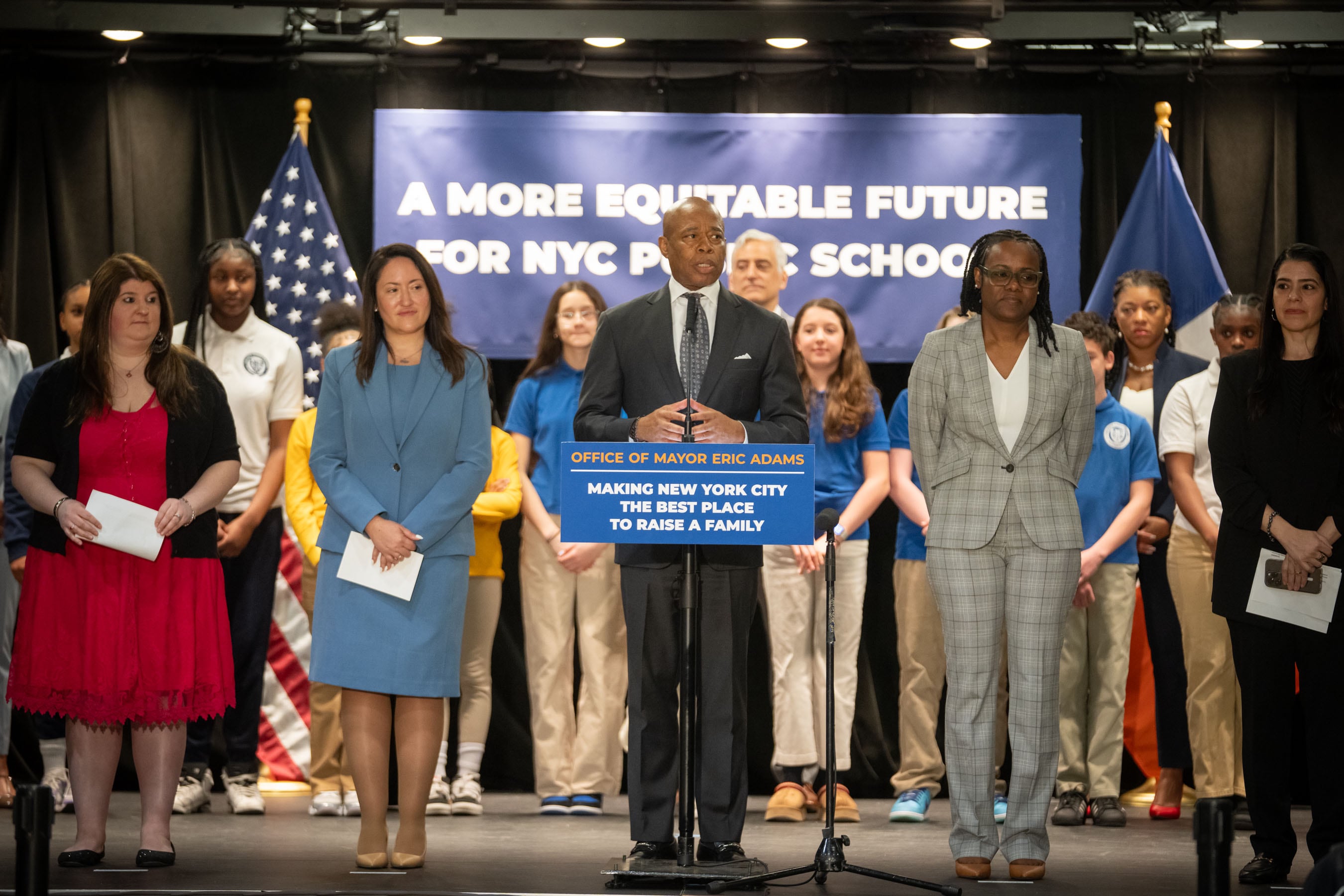Sign up for Chalkbeat New York’s free daily newsletter to get essential news about NYC’s public schools delivered to your inbox.
New York City is boosting funding for several early childhood education programs, including for preschoolers with disabilities and infants and toddlers in high-need neighborhoods, under a tentative budget deal officials announced Friday.
Fights over early childhood funding have pitted Mayor Eric Adams against the City Council for the past few years, usually with Adams threatening to cut programs to account for empty seats in some neighborhoods despite booming demand in others. The mayor has typically backtracked — and this year was no exception.
But the City Council and many advocates urged the mayor to go further to bolster the city’s strained child care and early education systems. And the budget deal, which is still subject to a final vote by City Council, includes a few new investments. The new $115.9 billion city budget would take effect on July 1.
Here’s what we know, according to City Council and City Hall sources familiar with the budget negotiations.
$10 million included for additional child care seats
The city is planning to expand access to free child care for children ages 2 and under, prioritizing families in high-need areas.
This $10 million pilot program will create hundreds of additional seats for infants and toddlers in programs operated by the Education Department. As of late Friday, however, there were few details. City Hall officials said it was not yet clear exactly how many seats they plan to add. Nor have they specified which neighborhoods will be prioritized.
“This pilot program is a breakthrough for our city and for our working class New Yorkers,” Adams said at a Friday afternoon press conference.
Advocates quickly praised the idea.
“This proposal will provide real relief to scores of families struggling to afford the crushing cost of child care in New York and start to stem the exodus of working families out of New York City,” Allison Lew, a senior organizer at the group New Yorkers United for Child Care, said in a statement.
Affordability has been the dominant theme in this year’s mayoral election, with several candidates offering plans to expand access to child care and after school programs. Zohran Mamdani, the likely Democratic nominee for mayor, vowed to implement a universal child care program. For his part, Adams recently launched an effort to expand free after-school programs.
Yet, Adams contrasted his approach with Mamdani’s proposals during his own reelection kick off event on Thursday.
“There’s no dignity in simply giving you everything for free,” Adams said. “This is not a city of handouts.”
Child care voucher program gets $220 million
City officials are kicking in $220 million for a child care voucher program that serves children from low-income backgrounds. This funding will ensure they can unlock state dollars to keep families enrolled.
Spending on the Child Care Assistance program has been growing due to increased enrollment and a rise in value of the vouchers to account for rising costs. About 80,000 children received a voucher last year, which is worth about $300 a week on average.
State officials demanded the city contribute more funding to keep state dollars flowing — and the city has now obliged. That means current voucher recipients will continue to receive them, though city officials had stopped enrolling new families in the program as of May.
Randi Levine, the policy director at Advocates for Children, said it’s unclear whether the increased city funding will be enough to enable new families to enroll.
“That’s another reason why the [Education Department’s] infant and toddler seats are important,” Levine said.
$70 million earmarked for preschool special education
Even as New York City stood up a free “Pre-K for All” program under former Mayor Bill de Blasio, the Education Department has never been able to provide the legally required services and school placements to thousands of preschool children with disabilities.
Adams has taken some steps in recent years to address the issue by boosting funding for community organizations that provide many preschool special education seats and opening new Education Department programs. Now, the mayor is adding an additional $70 million to that effort, which will help finance additional seats, services, and resources to evaluate children.
The city’s prior efforts fell short of resolving the problem. City officials acknowledged last month that more than 600 children with disabilities were still waiting for seats, with many likely sitting at home. Roughly 7,000 preschool students with disabilities, or about 29%, were missing at least once service, such as speech or occupational therapy.
City officials did not immediately say if they expect the $70 million will mean that all children will get the help to which they’re legally entitled.
The budget agreement “takes an important step toward moving 3-K and Pre-K far closer to being truly ‘for all,’” Levine said in a statement. The $70 million boost “will help ensure thousands of young children with disabilities get the special education services they need at a time in their lives when these services can have the greatest impact.”
Chalkbeat New York bureau chief Amy Zimmer contributed reporting.
Alex Zimmerman is a reporter for Chalkbeat New York, covering NYC public schools. Contact Alex atazimmerman@chalkbeat.org.







